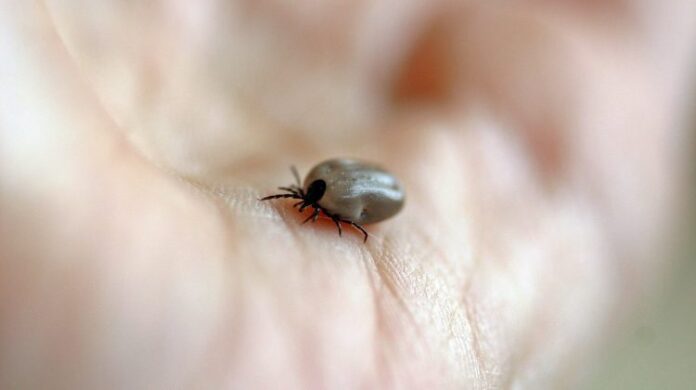With spring upon us, more people will likely be outside to enjoy the outdoors, and so will B.C.’s tick population.
The insects carry toxins that can cause temporary muscle weakness and paralysis if they remain attached for long periods. The risk is higher for children and seniors, but officials said the symptoms will fade once the tick is removed.
“There are easy things you can do to protect yourself from ticks such as covering up before you head outdoors and checking for ticks when returning from a walk, hike or bike ride,” said Dr. Fatemeh Sabet, Interior Health medical health officer. “Most tick bites do not result in illness; however, any bite from a tick should be cleaned because infection can occur whenever there is a break in the skin.”
IH officials said the insects can transmit illness on rare occasions, such as Lyme disease, when they bite into a host to feed off their blood.
WildSafeBC said two varieties of the insects that are known to bite humans live in B.C.: the Rocky Mountain wood tick and the western black-legged tick.
Ticks have eight legs, unlike other insects. They are usually most active in the spring and early summer.
They tend not to drop from trees but climb up to the tips of grasses and brush waiting for a host to come by. They are can be triggered by vibrations and go ‘questing’ for a host.
IH said the following tips will help you avoid ticks or spot them easier:
- Walk on trails and avoid grassy forested areas.
- Wearing light coloured clothing will help you see ticks
- Tuck your pants into your socks or wear gators.
- Apply insect repellent containing DEET.
- Be especially wary along game trails or good habitats for rodents. This includes open grassy areas.
- Check yourself, children and pets when you return from a hike. Ticks will climb up and they may be in your hairline, scalp, folds of skin, under your armpits or knees.
If you find a tick, remove it as quickly as possible by using fine-tipped tweezers. WildSafeBC said you should try to get as close to your skin as possible and pull straight up, ensuring not to twist.
IH recommends that you wear gloves when attempting to remove it. Officials said you should be careful not to crush the insect, as that could cause it to inject its stomach contents into your skin.
“Do not handle the tick with bare hands and, if you can, keep the live tick in your fridge. Monitor yourself for 3 to 30 days afterwards for any symptoms such as muscle joint pain, fever, fatigue or a bulls-eye rash. If you have any of these symptoms seek medical advice and bring the live tick with you for testing,” said WildSafeBC.






